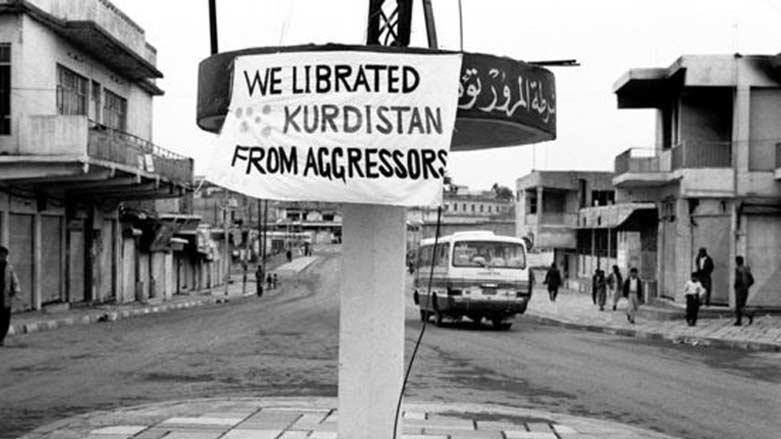‘March 5’ the revolt that changed the fate of the Kurdistan Region forever

ERBIL (Kurdistan 24) – March 5 represents an important and essential date, as it marks the first uprising of the Kurdish people against the former Iraqi regime that began 31 years ago today.
The uprising was ignited in response to years of repression by the central government. It began in the town of Rania on March 5, 1991, where locals swiftly took control of most of the offices and headquarters of the Baathist regime there.
The uprising quickly spread across Kurdistan and brought an end to the Iraqi military presence in the region by October of that year.
The Peshmerga forces played a prominent role in supporting the uprising, capturing Iraqi offices and military headquarters throughout the region.
At the same time, the US-led coalition against Saddam Hussein intervened and established a no-fly zone against the Iraqi Air Force over the Kurdistan Region, creating a haven for Kurdish refugees who had previously fled Iraq's helicopter gunships.
After the success of the uprising, the first parliament in the Kurdish region emerged after free elections were held in May 1992.
The Kurdistan Regional Government decided to make March 5 an official holiday to commemorate and honor the pivotal uprising.
The Kurdish uprising coincided with a Shiite revolt in the central and southern Iraqi provinces. That uprising was also fuelled by resentment over decades of Baathist repression.
At this time, Saddam Hussein's control over the country was at its lowest point, after two wars had depleted Iraq's resources. The long, drawn-out Iran-Iraq war began in 1980 and lasted for eight years. That conflict left a million dead on both sides.
Just two years after Iran agreed to a UN-brokered ceasefire with Iraq, Iraq launched a swift invasion of its southern neighbor of Kuwait. Baghdad took complete control of the small country overnight, announcing it was annexing it as a new Iraqi province.
A US-led coalition responded to Saddam's actions with aerial bombardments and then a ground assault, forcing the expulsion of the Iraqi army from Kuwait. As they retreated, Iraqi troops set fire to 700 oil wells, creating a hellish scene and a major man-made environmental disaster.